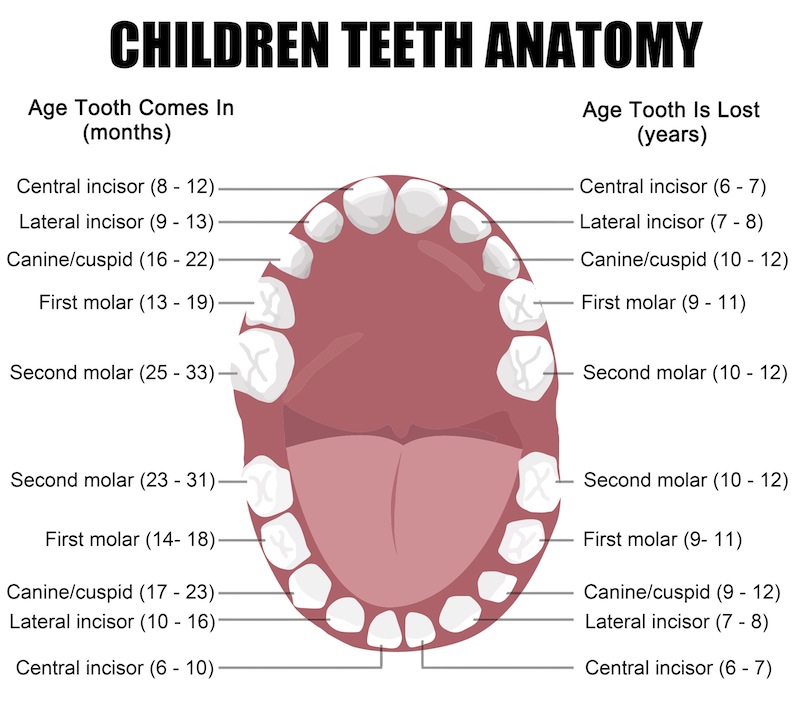Why are primary teeth so important?
Aren’t baby teeth just going to fall out anyway?
 Primary or baby teeth serve several major purposes in a child’s development. First, primary teeth are necessary for your child to learn to speak. In addition, they are necessary for proper chewing and eating. Finally, primary teeth provide space for the developing permanent teeth and help the jaw bones and muscles to develop correctly.
Primary or baby teeth serve several major purposes in a child’s development. First, primary teeth are necessary for your child to learn to speak. In addition, they are necessary for proper chewing and eating. Finally, primary teeth provide space for the developing permanent teeth and help the jaw bones and muscles to develop correctly.
Teething is the process of baby (primary) teeth coming through the gums, and usually begins between the ages of 6-9 months. The lower front (anterior) teeth are usually the first to erupt. All 20 teeth are in place by the age of 3. Around the age of 6-7, children begin losing their front baby teeth, and the back teeth (molars) are not lost until the age of 10-13.
Proper hygiene by brushing, flossing and professional cleaning of baby teeth is essential for the development of healthy permanent teeth. Neglected cavities can lead to problems, which can affect the developing permanent teeth. You may also hear of baby/primary teeth being referred to as deciduous or temporary teeth. It may be a person’s inclination to think of these ‘temporary’ teeth as less important than permanent teeth, but, as mentioned above, the truth couldn’t be more the contrary.
A more in-depth look at how primary teeth help development:
- Speech Development: Have you ever heard a child with two missing front teeth speak? If so, then you know how greatly the presence of an individual’s teeth contributes to their ability to speak. The same goes for properly aligned teeth. Even for babies, having healthy, well spaced, and reasonably aligned teeth greatly contribute to the ability to form words and speak clearly.
- Proper Chewing and Eating: A baby’s teeth are of huge importance regarding health and wellness. Digestion of many foods begins in the mouth! The process of chewing helps to break food down into digestible sizes. If your child has pain in his or her mouth because of cavities, sores, loose teeth or sore gums, they may only choose to eat foods which are of the least disturbance to their mouth, possibly eliminating many healthy foods from the diet. A child whose diet consists of great variation of textures of foods gets stimulation and exercise for the gums and cleansing action for the teeth.
- Development of Muscles and Jaw Bones: Sucking and chewing provide the opportunity to exercise a baby’s facial, tongue and jaw muscles. Without well-developed jaw muscles, there is a possibility the jaw bones will not form properly. Providing a variety of textures in food, as mentioned above, will provide a great opportunity for developing strong muscles and jaws.
